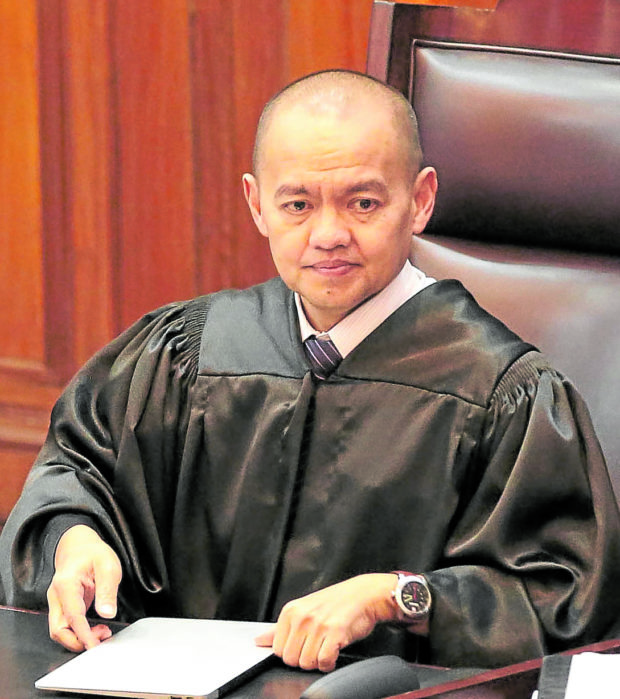SC Justice Leonen to law schools: Adapt to evolving tech landscape

FILE PHOTO: Supreme Court Associate Justice Marvic Leonen, who chairs the 2020/21 Bar examination, on Friday, January 28, 2022, cautions applicants against posting their notices of admission on social media.
MANILA, Philippines — Amid advancing artificial intelligence, Senior Associate Justice Marvic Leonen called on law schools to adapt to the evolving landscape or face the risk of being left behind.
Leonen made the pronouncements as he noted the rapid technological advancements globally and their effects on the legal profession.
“You cannot pause AI, you cannot pause evolution,” said Leonen during an inaugural academic forum at the Michael Richartz Center in University of San Carlos Talamban Campus, Cebu City on November 25.
“In the next two or three years, if law schools do not adjust, legal education as we know it now will be very archaic,” he added.
The associate justice then reminded law practitioners that while various AI applications can help law students, lawyers, and litigants alike, such tools should be treated not as an authentic source of information but as a reality that people would inevitably utilize as a resource.
Article continues after this advertisementLeonen then reminded law practitioners that “resilience is something that lawyers should develop.”
Article continues after this advertisementSupreme Court adapting to technology
READ: SC Justice Leonen: Corruption still exists in courts
Meanwhile, along with the continuing evolution of technology, Leonen, in the same forum, bared that the Supreme Court is also looking into utilizing technological innovations to manage its courtrooms.
He specified the reforms in the Supreme Court’s Strategic Plan for Judicial Innovations 2022-2027, which introduces a “Judiciary ePayment Solution” (JEPS), an online platform that allows the assessment and payment of legal fees and other collections of the Judiciary in a more convenient and accessible manner.
READ: 2023 Bar exam produces 3,812 new lawyers in PH
He also mentioned the improved Enhanced Justice on Wheels Program, the eCourt version 2.0, the Guidelines on Submission of Electronic Copies of Pleadings and other Court Submissions being Filed before the Lower Courts Pursuant to the Efficient Use of Paper Rule, and other possible enhancements in the conduct of the Bar examinations.
The Supreme Court had recently started conducting its bar examinations digitally.